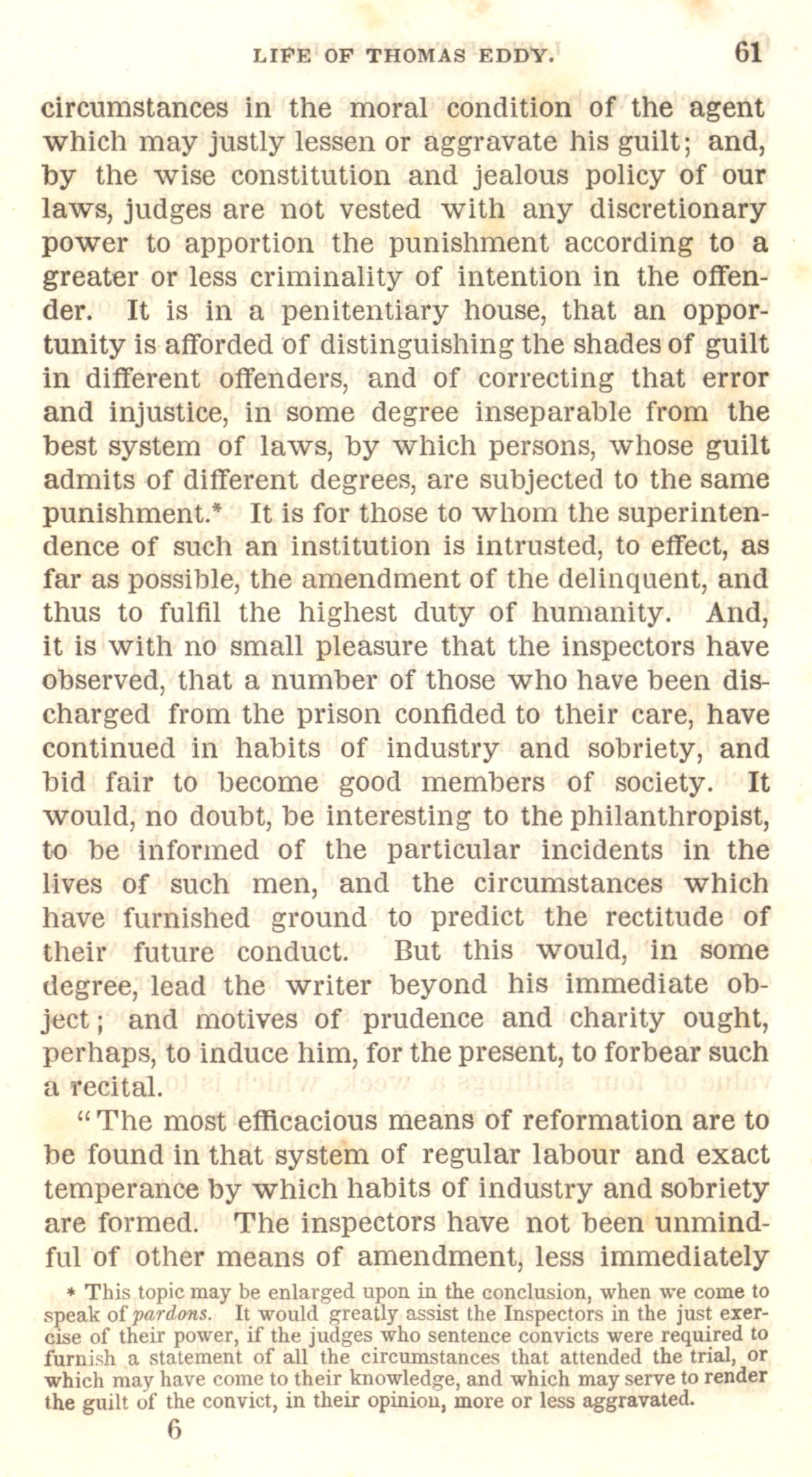circumstances in the moral condition of the agent
which
may justly lessen or aggravate his guilt; and,
by the wise
constitution and jealous policy of our
laws, judges are not vested
with any discretionary
power to apportion the punishment according
to a
greater or less criminality of intention in the
offen-
der. It is in a penitentiary house, that an oppor-
tunity
is afforded of distinguishing the shades of guilt
in different
offenders, and of correcting that error
and injustice, in some
degree inseparable from the
best system of laws, by which persons,
whose guilt
admits of different degrees, are subjected to the
same
punishment.* * This topic may be
enlarged upon in the conclusion, when we come to
speak of pardons. It would greatly assist the
Inspectors in the just exer-
cise of their power, if the judges
who sentence convicts were required to
furnish a statement of
all the circumstances that attended the trial, or
which may
have come to their knowledge, and which may serve to render
the
guilt of the convict, in their opinion, more or less aggravated.
It is for those to whom the superinten-
dence of such an
institution is intrusted, to effect, as
far as possible, the
amendment of the delinquent, and
thus to fulfil the highest duty of
humanity. And,
it is with no small pleasure that the inspectors
have
observed, that a number of those who have been
dis-
charged from the prison confided to their care, have
continued in habits of industry and sobriety, and
bid fair to
become good members of society. It
would, no doubt, be interesting
to the philanthropist,
to be informed of the particular incidents
in the
lives of such men, and the circumstances which
have
furnished ground to predict the rectitude of
their future conduct.
But this would, in some
degree, lead the writer beyond his
immediate ob-
ject; and motives of prudence and charity ought,
perhaps, to induce him, for the present, to forbear such
a
recital.
The most efficacious means of reformation are to
be found in that
system of regular labour and exact
temperance by which habits of
industry and sobriety
are formed. The inspectors have not been
unmind-
ful of other means of amendment, less immediately

